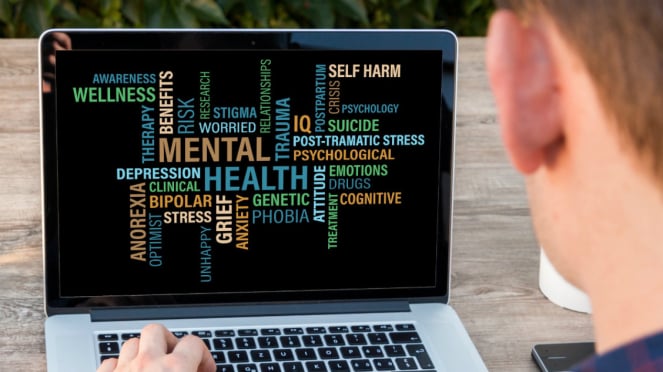Knowing Schizophrenia: What It is, Symptoms and Treatment
- vstory
Jakarta – Schizophrenia is a serious brain disorder that causes people to interpret reality abnormally. They don’t know what sights, sounds, and experiences are real or what they are imagining.
Schizophrenia usually involves delusions (false beliefs), hallucinations (seeing or hearing things that don’t exist), unusual physical behavior, and disorganized thinking and speech.
It's common for people with schizophrenia to have paranoid thoughts or hear voices. For example, they may believe that someone is controlling their mind or going to cause them harm. These psychotic episodes are often frightening, confusing, and isolating.
Schizophrenia can be extremely disruptive to a person’s life, making it hard to go to school or work, keep a schedule, socialize, complete daily tasks, or take care of oneself.
Ilustrasi gangguan kepribadian, gangguan mental.
- Pixabay/Maialisa
Well, here are the causes of Schizophrenia that people need to know:
1. Genetics
There is a strong genetic component to schizophrenia. Individuals with a family history of the disorder have a higher risk of developing it themselves. However, having a family member with schizophrenia does not guarantee that someone will also develop the disorder.
2. Neurochemical Imbalances
Neurotransmitters, the chemicals that facilitate communication between nerve cells in the brain, are believed to play a role. Dopamine, in particular, has been implicated in the development of schizophrenia.
An overactivity of dopamine transmission in certain brain regions may contribute to the positive symptoms of the disorder, such as hallucinations and delusions.
3. Brain Structure and Function
Brain imaging studies have shown that individuals with schizophrenia often have structural and functional abnormalities in various brain regions, including the prefrontal cortex, hippocampus, and thalamus. These abnormalities may contribute to the cognitive and emotional disturbances associated with the disorder.
4. Prenatal and Early Life Factors
Adverse events during pregnancy or birth, such as maternal infections, malnutrition, or complications during delivery, have been linked to an increased risk of schizophrenia. Early developmental factors and exposure to stressors during childhood may also influence the risk.
5. Environmental Factors
Certain environmental factors, such as exposure to trauma, childhood abuse, urban upbringing, and drug use (particularly cannabis), have been associated with an increased risk of developing schizophrenia. These factors can interact with genetic predisposition to contribute to the onset of the disorder.
People with schizophrenia can experience:
1. False beliefs that cannot be changed, even when presented facts (delusions).
2. Seeing or hearing things that do not exist, such as a voice making commands (hallucinations).
3. The belief that others are reading or controlling their minds.
4. Disorganized thinking and speech, including shifting from one thought to the next without a logical connection, or speaking in sentences that do not make sense to others.
5. Difficulty speaking and expressing emotion, as well as problems with attention, memory, and organization.
Treatmet options:
- Antipsychotic Medications
- Psychosocial Therapies
- Rehabilitation Programs
- Supportive Services
- Hospitalization
- Medication Management
It's important to note that treatment for schizophrenia is ongoing and requires collaboration between the individual, their family, and mental health professionals. Early intervention and consistent treatment can help manage symptoms, prevent relapses, and improve overall functioning.



























